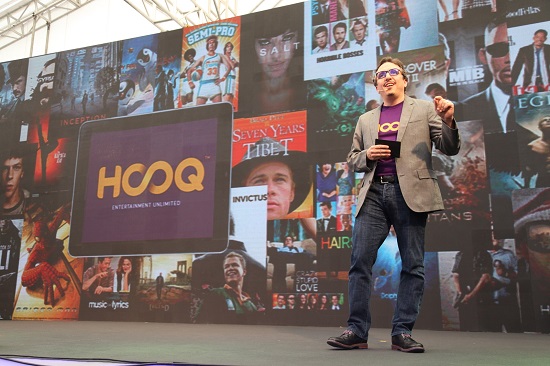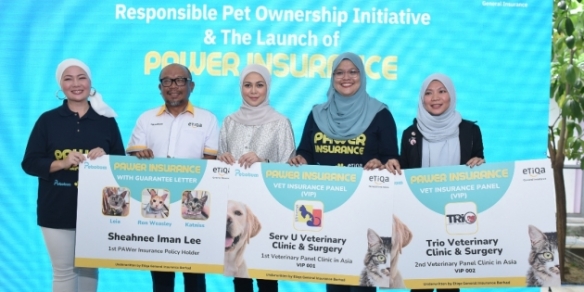Chromecast support now, original content coming: Hooq CEO
By Keith Liu October 19, 2015
- Maintain focus on emerging market customers
- Worked with Google to enhance Chromecast experience
SINCE the launch of its video-on-demand service in the Philippines, Hooq, a joint-venture between Singapore Telecommunications (Singtel), Sony Pictures Television and Warner Bros Entertainment, has been hard at work to launch in other markets like India and Thailand – and Indonesia seems to be on the cards.
The media startup was also featured as a preferred OTT (over the top) content provider in Globe Telecom’s recent deal to launch Google’s Chromecast device in the Philippines, in the carrier’s bid to address the home entertainment market.
READ ALSO: Satcom solutions provider Global Invacom poised for next wave
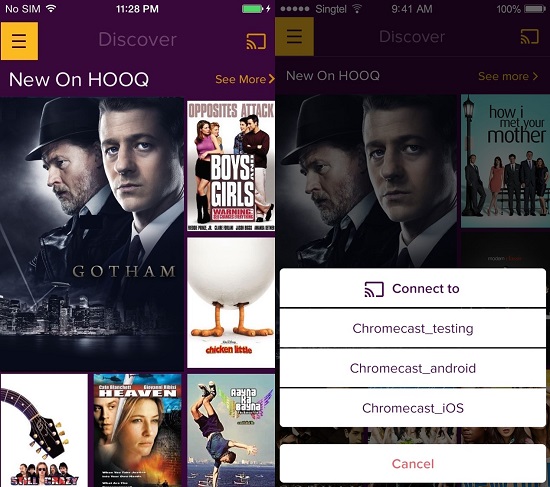
In light of industry giant Netflix’s plan to enter Asia in early 2016, as well as the launch of Catcha Group’s iflix, Digital News Asia sat down with Hooq chief executive Peter Bithos for an exclusive interview on the company’s current and future plans:
DNA: What is Hooq trying to do that's different?
Bithos: Today, the only two places you can go [if you’re into music and entertainment] are BitTorrent – piracy – or YouTube. That’s it! There are no other choices. So we’re born to solve that problem.
Solving it for the emerging market customer is different than solving it for Australia, Japan, Korea, Hong Kong or Singapore. Our mission statement is we’re a million stories for a billion people – and the billion people live very different lives than we do in Singapore.
We’re out to be the largest OTT premium paid-for service in emerging markets anywhere. To get started, we’re focused on South and South-East Asia – the Philippines, Thailand, India and some obvious markets next.
DNA: What’s your strategy for addressing the emerging market?
Bithos: We generally stay away from content that’s not on YouTube, and we’re focused on a paid service. Each of the geographies are going to have their own competition, many of that will be free. We’re not after that.
We’re after the premium paid-for service but executed in a manner that’s tailored for the emerging market customer. That means they pay for things in different ways, they buy things in different ways, they digest things in different ways.
One example is ‘offline mode’ (downloading videos to watch later, instead of streaming). We were the first service in the world to offer Hollywood content in offline mode. We did it at launch back in February when we launched in the Philippines.
It’s going to take a lot of ecosystem partners to solve a lot of issues – billing, product, bandwidth – all these problems in emerging markets needs to be solved with partnerships.
You have to have content and stories the customers want, you have to have product that the customer can afford and you have to have the ability to pay for it and if you combine all three things in a great product experience, then you’ve cracked it. And no one yet has cracked it.
DNA: What about cracking the challenge of payments?
Bithos: Working with telcos, working with other partners to solve that problem, is a really fundamental part of our journey.
People take it for granted, people sign up for Netflix, you put it on your credit card, you’re set and you forget. There is no such thing like that for the average emerging market customer; it doesn’t exist that way!
So we have to solve that problem – it could be working with alternative payment providers all the way through to the telcos.
DNA: Most emerging market customers are prepaid users, though.
Bithos: Prepaid is not only a payment problem, but it’s also a product problem because obviously the average customer doesn’t carry prepaid loads in their wallet, so what happens if you want to buy the product and you’ve got no money there?
We’re got to solve these problems, and these are problems that can’t solve by themselves – and oh, by the way, neither can Netflix or anybody else.
So it’s a partnership approach we’ve got to take, and sometimes it means convincing our content partners to try different things, sometimes it means convincing our payment providers to behave in new ways, sometimes it means working with telcos to do different things.
And if you look at Netflix, they’re going to do great when they roll out across the region, but it’ll be for the top-tier customers who have credit cards and you know, drive cars to work every day. It’ll be a very small slice of Asia.
Now a small slice of Asia is still millions of people but nevertheless, we’re not after those customers, we’re after the tens, the hundreds of millions of people who live their lives very differently.
DNA: Any chance then, of a free advertising-led service tier?
Bithos: Our focus right now is on paid premium content. We do have a desire to make sure that customers can try our product at scale, and try everything we have to offer for free, for a period of time, and then make the decision whether or not to keep paying for it or not.
I think business models will evolve that include ad-supported models, but whether or not we go there ... we’re focused right now on just getting paid customers.
DNA: Let’s dive into the content focus then.
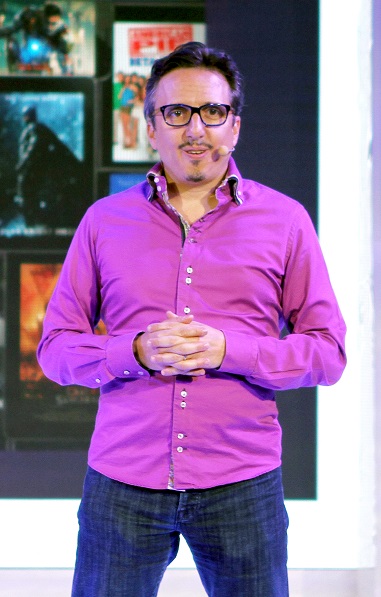 Bithos: Where we are really focusing – we are out to bring the best of Hollywood and the best of local. And that’s our lineage from the start. [It] is a large, large focus, not only on Hollywood, but also on local content.
Bithos: Where we are really focusing – we are out to bring the best of Hollywood and the best of local. And that’s our lineage from the start. [It] is a large, large focus, not only on Hollywood, but also on local content.
We have the largest Hollywood catalogue of anywhere in Asia but we also have the largest Filipino OTT content of anywhere in the Philippines, we have the largest Thai catalogue than anybody in Thailand, the largest Indian content than anybody in India.
Whenever when we get our rights, we get our rights for all of Asia, so all the Hindi movies are available in the Philippines, all the Filipino movies are available in India, and we’re a big believer that over time, stories translate easily.
This region is uniquely diverse in its taste. Local content providers understand the emerging market customer a lot better than Hollywood.
Hollywood partners – not just our partners – they’re on a journey, they don’t really understand the emerging market customer yet, and we’ve got to try to educate them and part of our goal is to help the ecosystem work together to create a business platform.
DNA: Any plans for original content programming?
Bithos: Absolutely! It’s table stakes now, of course. It’s going to be part of the mix, and it’s going to complement a fantastic Hollywood catalogue and a fantastic local catalogue as well. It seems sexy and it’s what people like to talk about now, but for us, it’s table stakes, it’s natural.
The good news is you can’t be in a better region to produce content than this. The amount of hours produced in Asia, this is a region that knows how to produce content.
Now – is it the right content? Is it high-quality content? Is it great stories? Is it regional, does everything play to the region? These are the things we’re working through right now.
We never think we have the answers by ourselves, our goal is to find the partners to find the answers together. And there’s a lot of people out there thinking along the same lines, so yes you will see us play in original content very quickly.
DNA: Where is the business at currently?
Bithos: We are halfway through our growth cycle in our first phase. We probably have about 50-60 full-time people, and another 40 who support the business. We’ll try to double that in a short period of time.
What you’re going to see from us over the next three or four months, is a lot of innovation happening across the region, and we’re picking different regions to spearhead different things, and taking that across [the region].
One of the things we’re bolstering up is exclusive catalogues. You’re going to see a lot of exclusives, but our first goal is to blow out the current Hollywood TV to complement the largest movie catalogue in Asia.
The other aspect is the product side – making the product available across the region in as many ways as possible.
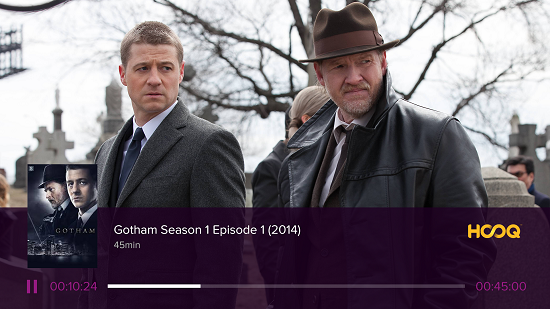
We announced a partnerships with Chromecast in the Philippines, to be the preferred OTT Chromecast partner. We [had] a new version of Hooq launch on Oct 13 that not only supports Chromecast, but has deep integration with Chromecast, and a customer experience designed with Google.
And you’re going to see that playing itself out all across the region.
DNA: Will this help eradicate video piracy?
Bithos: Piracy will never go away, it will always be there, there will always be a subset of customers who will do what it takes and don’t care about any of the other aspect.
It took Hollywood a long time; they are a very slow moving ecosystem to adapt its windows to the world. Today, when a movie comes out, you can find it on piracy the very next day, when a new season breaks you can find it the very next day.
Until Hollywood changes – and it’s changing – it’s a fundamental view that there will always be a base of piracy there.
But the music industry has shown that if you provide the customer a convenient, easy and affordable way to get great quality content, many millions of customers will choose that route.
Most people don’t set out to say I want to pirate content because I want to. No – what do they want? They want to be entertained. And so if you give them a platform to see the content that they want, when they want, how they want in an affordable way, you’re going to get many people choosing the appropriate way.
Spotify’s and Spotify’s success in the Philippines and other countries like that is testament to that. Millions of people don’t even bother to pirate music because they have Spotify. There’s no reason why players like Hooq can’t fill that role [for movies and TV content].
Quickplay platform to power Singtel’s Hooq
Philippines gets Hooq-ed, first to launch Singtel’s Netflix-type service
iflix and PLDT in exclusive agreement in the Philippines
Piracy is biggest Netflix competitor in Singapore: Lawyer
For more technology news and the latest updates, follow us on Twitter, LinkedIn or Like us on Facebook.
